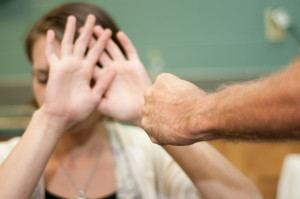Abuse, Part 2
Experts with the Answers—Maybe Yes, Maybe No
In the past few months I’ve met some terrific people in the relationship field: Ariel Ford, Jack Canfield and Julie Ferman among them—people whom I respect and whose ideas offer a more holistic view of men/women relationships. However, I’m also seeing a lot of sites and professionals who play up the generalized differences between the sexes as their primary message and focus with little to no attention on the unique and distinct qualities that make individuals, individual. And I think that this narrow focus—on our differences, broadly advanced in society among a trusting public who often buy, wholesale, what viewpoints experts further—opens the door to disrespect, dishonor, and ultimately violence and abuse.
We see the extremes of this in foreign countries where it is somehow okay for men to beat or kill their female family members because they are women; they are different from men—different being the great justifier of inhumane acts perpetrated by one entity upon another. “Hey, it’s not my team, my family, my sex. It’s the other team, family, sex, the one that is different from me, my enemy.”
1 in 4 women will experience domestic violence during her lifetime.
Yes, there are differences, of course. Physically, hormonally. Yes, there are physical urges that in some are more pronounced, without which this planet would be a lonely place. And perhaps there are some generalized hats and activities that usually suit men better than women and vice versa. These are usually positive and rational ways to organize and divvy up the actions men and women take in the business of living.
But relationship experts spending most of their time telling women (all women as a distinct group) which three little words will drive men (all men as a distinct group) so crazy they’ll never again look at other women… Or the ten steps to every man’s heart… Or how to understand women….
…..or any generalized advice that reduces relationships to one-size-fits-all emotions, viewpoints, expectations, requirements, and demands, does people of both sexes a serious disservice. Such oversimplifications, generalizations, and altered importances are lies!
I have a problem with such broad statements on any subject, but especially on this one regarding men and women. We’d like to think that experts know the score—that we can trust them to do the thinking for us without personal inspection or evaluation of what they’re saying. Wouldn’t that be nice?
BTW, I include myself in this list of “experts” that we think we can trust, which is why I tell people to not believe a word I’m saying! Listen and take in the information and if you find it useful in the context of your own life and situation, use it. If not, move on!
Reexamining our Thoughts on Relationships
This way of viewing the relationships between men and women has existed for a long time. But in spite of all the advice, blogs, experts, books, etc. promoting the differences, multi-millions of people are still struggling to find meaningful, loving and lasting relationships—and paying a king’s ransom to experts they hope will have the answers. I think it’s time to rethink our priorities because the seemingly benign and innocuous messages we put forth or forward can lead to a division of the sexes, a separateness, from which one sex can comfortably justify transgressions against the other.
As stated in my book, we are people—individuals—first, men and women second. And it is less likely that a person will violate another when that person knows that each is cut from the same cloth.
- Each is inherently the same inside.
- Each experiences the same emotions, losses, victories.
- Each has the capacity to love, to create, to have opinions, to think, to solve problems.
This post is continued in Abuse, Part 3.



Leave a Reply